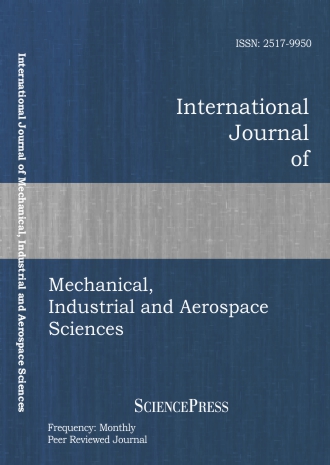
Scholarly
Volume:7, Issue: 6, 2013 Page No: 1036 - 1040
International Journal of Mechanical, Industrial and Aerospace Sciences
ISSN: 2517-9950
1250 Downloads
Shear-Layer Instabilities of a Pulsed Stack-Issued Transverse Jet
Shear-layer instabilities of a pulsed stack-issued transverse jet were studied experimentally in a wind tunnel. Jet pulsations were induced by means of acoustic excitation. Streak pictures of the smoke-flow patterns illuminated by the laser-light sheet in the median plane were recorded with a high-speed digital camera. Instantaneous velocities of the shear-layer instabilities in the flow were digitized by a hot-wire anemometer. By analyzing the streak pictures of the smoke-flow visualization, three characteristic flow modes, synchronized flapping jet, transition, and synchronized shear-layer vortices, are identified in the shear layer of the pulsed stack-issued transverse jet at various excitation Strouhal numbers. The shear-layer instabilities of the pulsed stack-issued transverse jet are synchronized by acoustic excitation except for transition mode. In transition flow mode, the shear-layer vortices would exhibit a frequency that would be twice as great as the acoustic excitation frequency.
Authors:
References:
[1] Y. Kamotani, and I. Greber, "Experiments on a turbulent jet in a